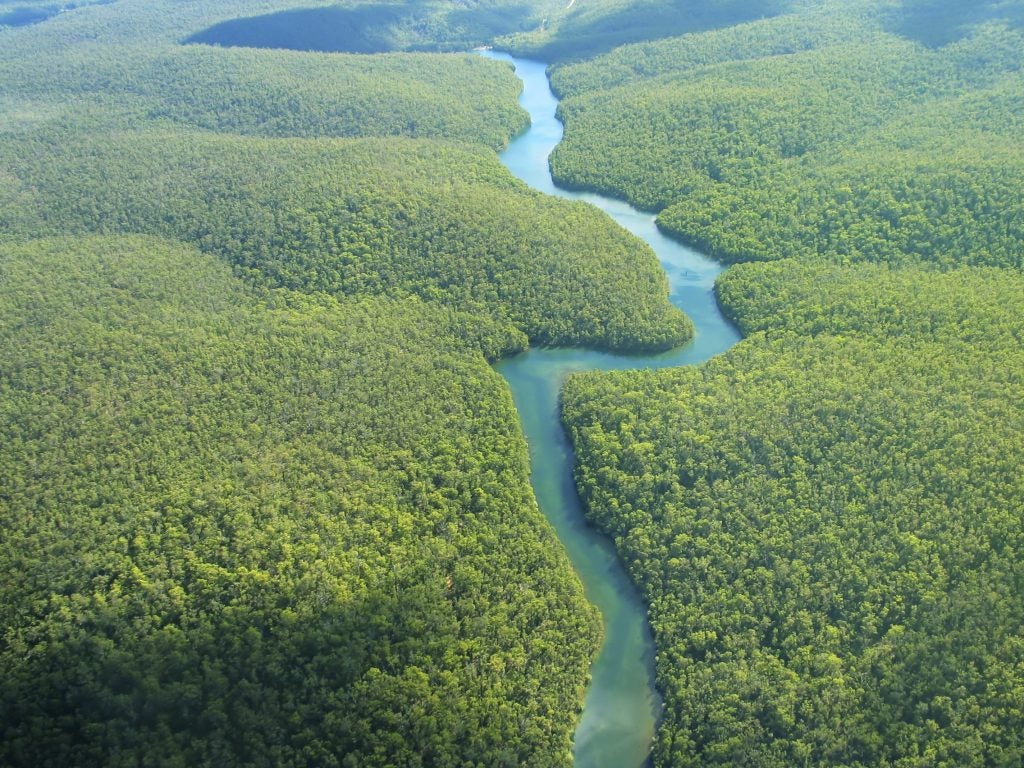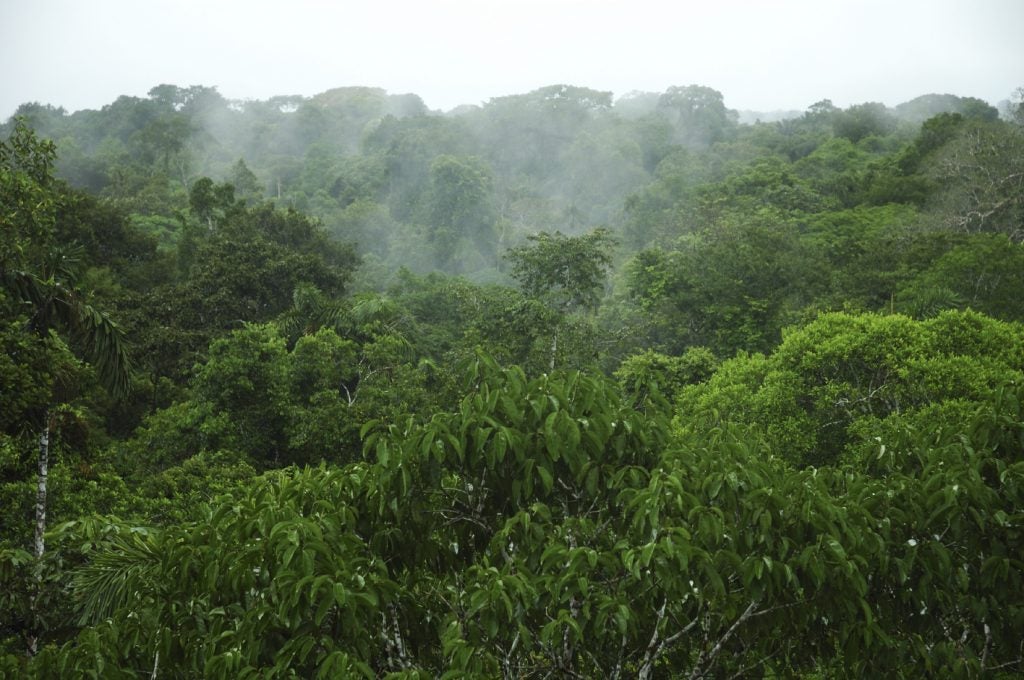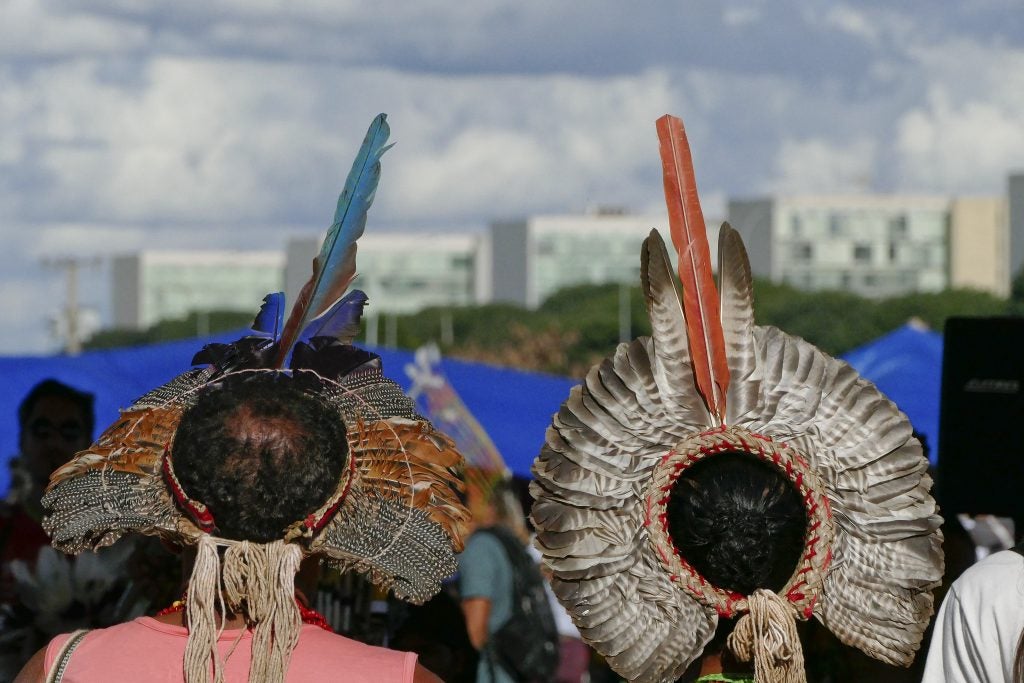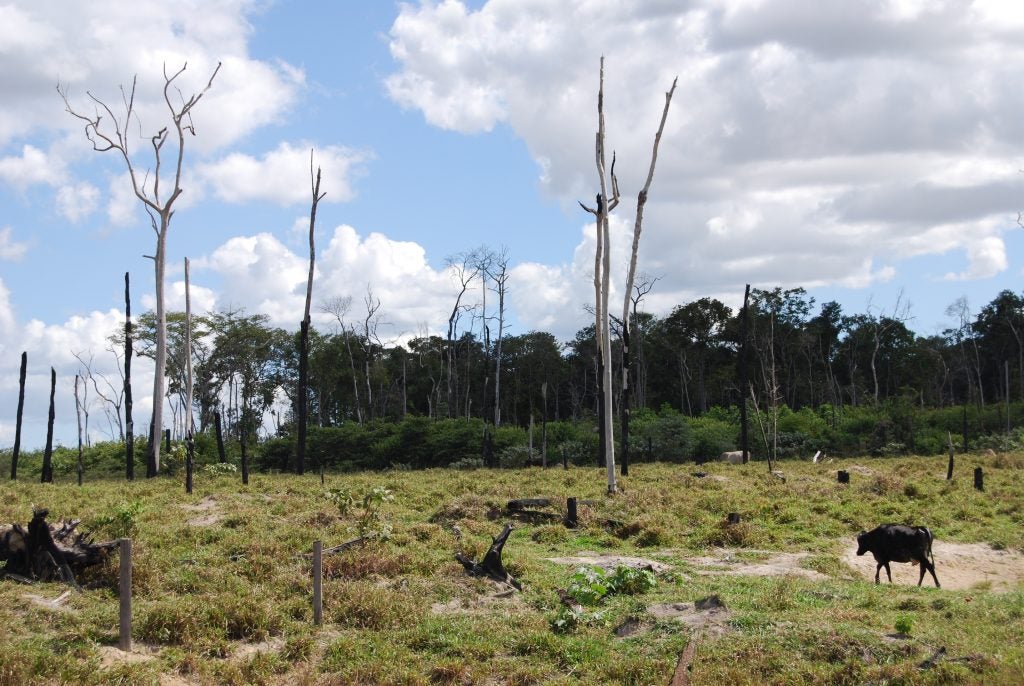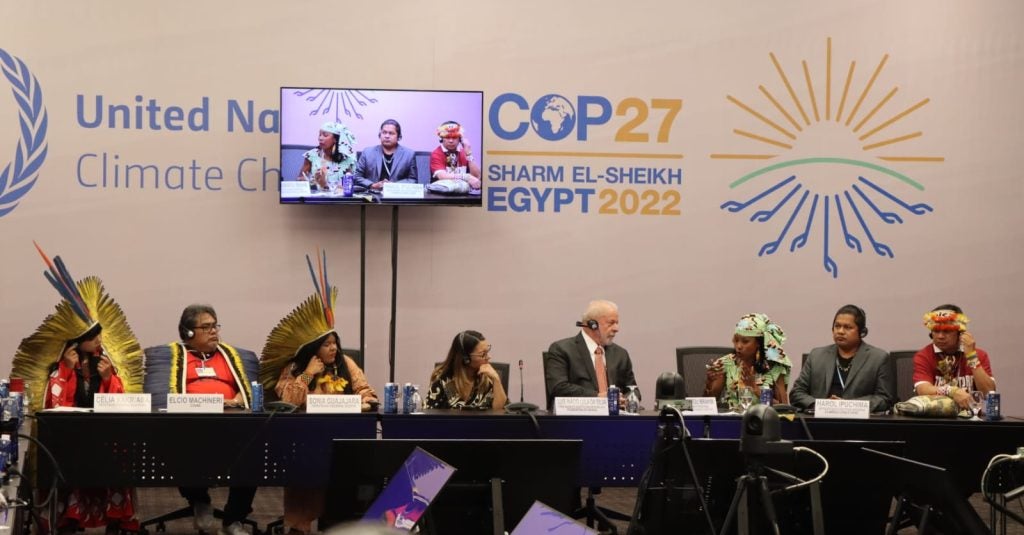
Brazilian President-elect Luiz Inácio Lula da Silva meets with Indigenous leaders at COP27 in Sharm El-Sheikh, Egypt on November 17, 2022. Photo by COICA Communications.
“Brazil is back,” said President-elect Luiz Inacio Lula da Silva in his Nov. 16 address to COP27 in Sharm El-Sheikh Egypt. But it’s a Brazil far more attuned to climate change, Amazon deforestation and Indigenous peoples’ rights than the one Lula assumed responsibility for when he first became president in 2003.
During his speech, Lula promised zero deforestation in Brazil by 2030, a first-ever Ministry for Indigenous Peoples, and crackdowns on the environmental crime that has run rampant under the Jair Bolsonaro government. He also talked about a return to the “civilizing values” championed by his former Environment Minister and now congresswoman-elect, Marina Silva.
These announcements were all met with great enthusiasm by Lula’s audience in Sharm El-Sheikh, where climate negotiators, civil society, businesses and others with a stake in the climate fight convened over the last two weeks.
The prospect of Brazil’s return to leadership in the international climate negotiations – and the promise of effective action to combat climate change – are both very important developments in the climate movement. Read More










